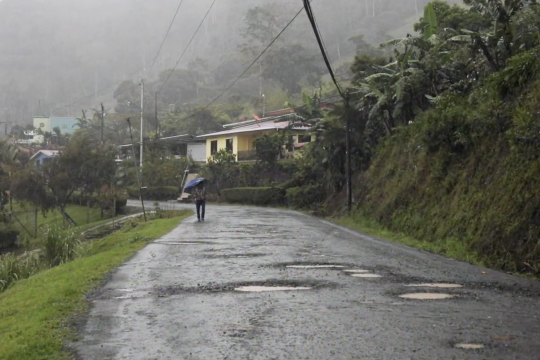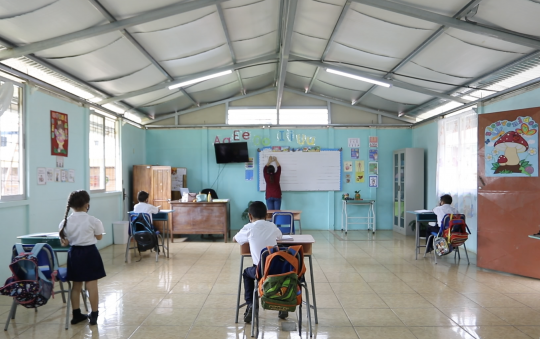Weather conditions affect school results and should be considered when designing and targeting public policies, according to the preliminary research results of an EfD study.
Effects of abnormal precipitation on school dropout rates is the title of the study conducted by Laura Villalobos and Juan Robalino, researchers from EfD Central America, and Lucía Contreras, from the University of Costa Rica (UCR), in collaboration with researchers from Colombia and Mexico.
"The effects of climate change must be considered when planning and forecasting the allocation of resources and the growth path of a country", says Laura Villalobos.
"The effects of climate change on natural, built, and human capital must be integrated into each country's risk management strategy".
Hard to maintain productivity
The study is conducted in three countries: Costa Rica, Colombia, and Mexico. Researchers and institutions from those countries have been working together to gather the information and conduct the research process, which analyzes has weather variation affects school results in developing countries with severe gaps and inequality in schooling outcomes, substantial exposure to extreme weather events, and remarkably poor infrastructure.
The study contributes to quantifying and understanding the diverse impacts of climate change, specifically related to the effects on school performance.
"The main result is that extreme weather has a direct impact on humans", says Laura Villalobos.
"Excessive heat and precipitation affect the services that nature provides such as the regulation of air quality, water cycle, natural hazards, and food provision."
"Now, we are showing that in addition to these indirect effects, there is a direct link between weather and human capital", Laura Villalobos explains.
"The more extreme the weather, the harder it is to maintain our productivity."
Higher risk of school failure
These findings of the study help to understand the need to design public policies related to education, especially in countries affected by extreme weather.
"The regional gaps in educational outcomes are unlikely to close over time without remedial actions. Vulnerable students in flood-prone and hot areas have systematically higher risks of failure."
"Active planning and compensation mechanisms could mitigate this trend, and the study can help decision-makers to visualize and understand the link."
As an example, Villalobos adds: "By investing in technology and infrastructure you can ease the burden of extreme weather on the students."
Daniela Linares, for EfD Central America
The study explained in a video
EfD Central America and the researchers have produced a video to communicate this study to a broader audience. It includes testimonies from school children, teachers, researchers, and a representative from the Ministry of Public Education of Costa Rica. It is in Spanish with subtitles in English.
See this six and a half minutes video!

